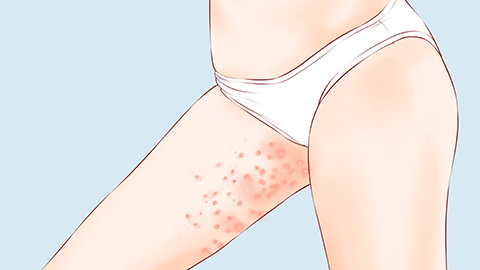What part of the body is malfunctioning when suffering from chronic urticaria?
Generally, the occurrence of chronic urticaria may indicate underlying problems with organs such as the spleen, gastrointestinal tract, liver, skin, or kidneys. A detailed analysis is as follows:
1. Spleen
The spleen plays an important role in immunity and metabolism. If spleen function is impaired—for example, if its transformation and transportation functions are weakened—it can lead to accumulation of dampness in the body that cannot be properly eliminated. This pathogenic dampness may spread through the meridians to the skin, disrupting normal skin physiology and triggering urticaria.

2. Gastrointestinal Tract
Gastrointestinal dysfunction is one of the common causes of urticaria. When digestive and absorptive functions decline or when the intestinal mucosal barrier is damaged, allergens from food or incompletely digested substances may easily enter the bloodstream. These substances can trigger an immune response, leading to the release of inflammatory mediators that act on the skin and cause urticaria. This may also be accompanied by gastrointestinal symptoms such as abdominal pain, diarrhea, and bloating.
3. Liver
The liver is responsible for metabolism and detoxification. If liver function is impaired, toxins produced by metabolism and external harmful substances cannot be effectively broken down and excreted. Accumulation of these toxins may affect skin health via the circulatory system, disrupt the skin's normal immune balance, and make it more susceptible to irritation and urticaria. In addition, abnormal liver function may interfere with hormone metabolism, indirectly increasing the likelihood of urticaria outbreaks.
4. Skin
As the organ directly interfacing with the external environment, the skin’s own condition is closely related to the development of urticaria. If the skin’s barrier function is compromised—such as from frequent use of irritating skincare products, excessive cleansing, or injury—external allergens and irritants can easily penetrate into the deeper layers of the skin. These substances can trigger inflammatory reactions, causing blood vessel dilation and increased permeability, resulting in hives, itching, and other symptoms characteristic of urticaria.
5. Kidneys
The kidneys are primarily responsible for excreting metabolic waste and regulating fluid balance. When kidney function is impaired, metabolic wastes cannot be effectively eliminated and accumulate in the body as toxins. These toxins may affect systemic circulation and immune function, thereby impacting the skin, reducing its resistance, and making it more vulnerable to various triggers that induce urticaria.
In addition, factors such as emotional stress and environmental changes may also indirectly contribute to urticaria. In daily life, it is important to pay attention to the health of all body organs, maintain healthy lifestyle habits, and avoid known allergens to reduce the frequency of urticaria episodes.




